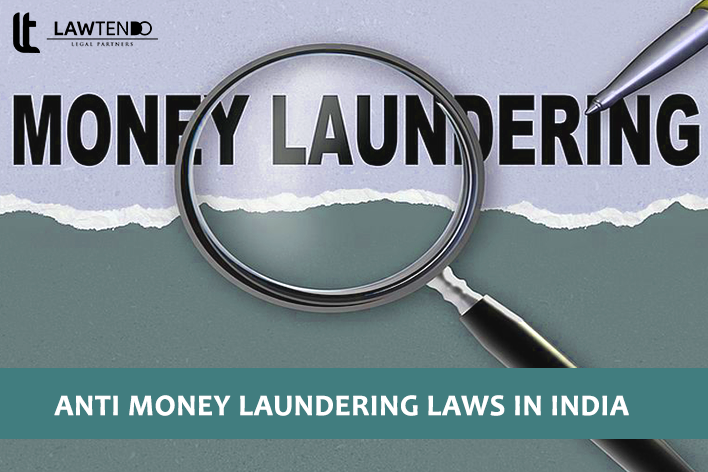What are the laws governing money laundering in India?

Date : 23 Aug, 2019
Post By Sankul Nagpal
With everyone running after money, white-collar crimes and economic offences are not a new thing. Each day a new economic offender makes headlines as the government and private companies are duped of millions of rupees. And with every offender focusing on legitimizing their illegal income, the offence of money laundering is constantly rising. What is Money Laundering? The offence of Money Laundering typically involves activities that are undertaken to create the appearance that large amounts of money obtained from serious crimes have originated from a legitimate source. Illegal smuggling and other organized crime, such as drug trafficking can generate huge amounts of money. This money is then tried to be “legitimized through the act of money laundering. Thus, money laundering is the process of conversion of criminal proceeds, to make it appear as 'legitimate' money. The Law governing Money Laundering in India In India, The Prevention of Money Laundering Act 2002 under the IT Department was enacted to curb the criminal offence of money laundering. The PMLA 2002 enables the Government or the public authority to confiscate property earned from the illegally gained proceeds. Thus the PMLA Act aims to control and prevent money laundering, confiscate the property obtained from the laundered money and finally to deal with any other issue linked with money laundering in India. Punishment under the PMLA 2002 Under the Prevention of Money Laundering Act, whoever commits the crime of money-laundering are liable to be punished with imprisonment for a period of not less than three years and which may extend to seven years and a penalty of Rs.5 lakhs. The punishment may also be extending to 10 years for certain crimes. Further, as per Section 45 of the PMLA, money laundering is a non-bailable offence and an arrest for the same can also be made without a warrant. To further enhance the magnitude of punishment under Section 271(C) of the Income Tax Act, concealing income is an offence with penalties of up to 100% to 300% of the evaded tax. Authorities entrusted to conduct proceedings under the PMLA? Under the act, there is a specialized body constituted for investigation of offences. The Directorate of Enforcement in the Department of Revenue, Ministry of Finance is the body entrusted with the task of investigating the offences of money laundering under the PMLA. Investigation usually begins with an Enforcement Case Information Report which sets the investigation into motion. The Financial Intelligence Unit - India (FIU-IND) under the Department of Revenue, Ministry of Finance is the central national agency responsible for receiving, processing, analyzing and disseminating information relating to suspect financial transactions to enforcement agencies and foreign FIUs. After the investigation under PMLA is complete for the offence of money laundering, a formal complaint is filed by the investigating authority before the Special Court, where the trial for the offence actually takes place. Thus the offence of money laundering in India is governed through strict and stringent acts such as the PMLA and the Income Tax Act both of which aims to curb the growth of money laundering in India and to make India free of grievous economic offences such as money laundering. LawTendo has around 15000+ lawyers across India in our platform. LawTendo strives to facilitate cost-efficient and quality legal service to our clients. You can contact us at +91-9671633666 or [email protected].





